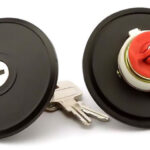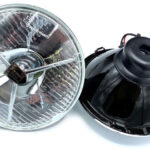One of the challenges when setting up a new website is deciding what to call it. It definitely makes life a lot easier if you can choose and purchase a website domain name for your club before building the website.
It may take time for members to think about and agree on a suitable name; one which the club can live with long term. At the very least, purchasing the domain name as soon as possible will avoid delays in getting the website online if your first choice is too expensive or belongs to someone else.
How to Choose
The best place to start is with the name of the club. As clubs are usually named after their local area, a marque or a nickname, picking a website or domain name is usually a fairly straightforward task.
The main thing to worry about is whether the chosen name is available. A domain name should cost around £10.00 to £20.00 per year but can cost more as some individuals and companies register domain names in the hope they can resell them for vastly higher sums.
Consideration should also be given to whether a name may breach someone else’s trademark or copyright. This isn’t a problem for most clubs but smaller vehicle manufacturers may still exist and object if the club website address is too close to their business name.
The length of the name usually doesn’t matter as people are used to finding a website through search engines. The suffix (.com, .co.uk, etc.) is not an issue for the same reason. The main concern should be that the name is attractive and easy to remember – you will be writing it in the newsletter, getting links on other websites and telling people about it on the telephone.
How to Buy
It is always preferable for the club to own and control its own domain (or website) name. Most clubs will rely on a third party such as a website developer to buy and maintain the domain on their behalf. In this instance the developer will look after the administrative details.
However, nowadays it is possible for the club to purchase and maintain its’ own domains without too much difficulty. There are several domain registration services such as 123-Reg and 1&1 IONOS which allow you to set up your own account to look after domain names – adding a credit card for automatic renewal ensures that the registration is always up-to-date.
The domain registration service provides a search facility so you can see what domains are still available. It can suggest alternative versions of the name and there is usually a pre-booking and resale service so you can track domains which are not currently available.
How to Manage
The domain name should be treated as a club asset and renewed annually. The club website will develop an online reputation and improved search engine rankings over time. The value of the domain name will rise as the website increases in popularity.
A domain name is often registered in the name of the website builder. The club can often find it difficult to transfer the name to a new website if they change suppliers or the website builder goes out of business.
A domain name becomes available for resale if it is not renewed on a regular basis. It can be difficult to recover if it is purchased by someone else. The club’s reputation can be damaged by becoming ‘invisible’ online – people may think the club has disbanded. The domain name may also end up on an unsavoury website.
Always ensure that the domain name is registered using the clubs details (the admin can remain with the website builder) and paid before the renewal date.
How to Benefit
The website domain name defines a club’s identity as much as the club logo. It can be published in a variety of places such as letterheads, newsletters and directories to help promote the club. Continual use of the website address builds up credibility over time.
Club officers and committee members tend to use their own email addresses as a point of contact. This can cause problems if a member retires or changes their role within the club. The nature of the internet means that a private email address can often stay online, resulting in an ex-member still receiving club emails and the person making an enquiry becoming frustrated at not finding the right contact.
The club may lose previous email correspondence and associated contacts if the club does not have a policy of backing up emails from committee members. These emails often represent a part of the club’s history. A new post holder may have to build contacts from scratch.
The website address can be the basis of email addresses for club officers and committee members. Each committee member can have an email associated with their role (and separate from any private address). The club can be confident that only their ‘official’ email addresses appear online and the email account can be reassigned to the next post holder as necessary ensuring a continuity of information.
Conclusion
A well chosen website domain name has many advantages for a club – it can help to build up the club’s credibility online, save time and money by having one point of contact, provide the basis for email addresses and social media accounts and can make it easier for new and existing members to find information about the club.
At the very least, a domain name is an asset which will grow in value through being used; one which can be sold at a later date.
Article originally published by ClubWorks [March 2015; updated August 2015]
Main Image Credit: Jessica Lewis Creative, Pexels
Further Reading
Who Controls Your Domain Name?
Author: Richard Keyt, Domain Name Law attorney
Do you control your domain name? Do you know who controls your domain name? If you do not, you should check immediately. You may be surprised to learn that the people or companies that have legal control of your web site’s domain name are not associated with your company or perhaps they may be employed by your company, but are not the right people. Read More…









